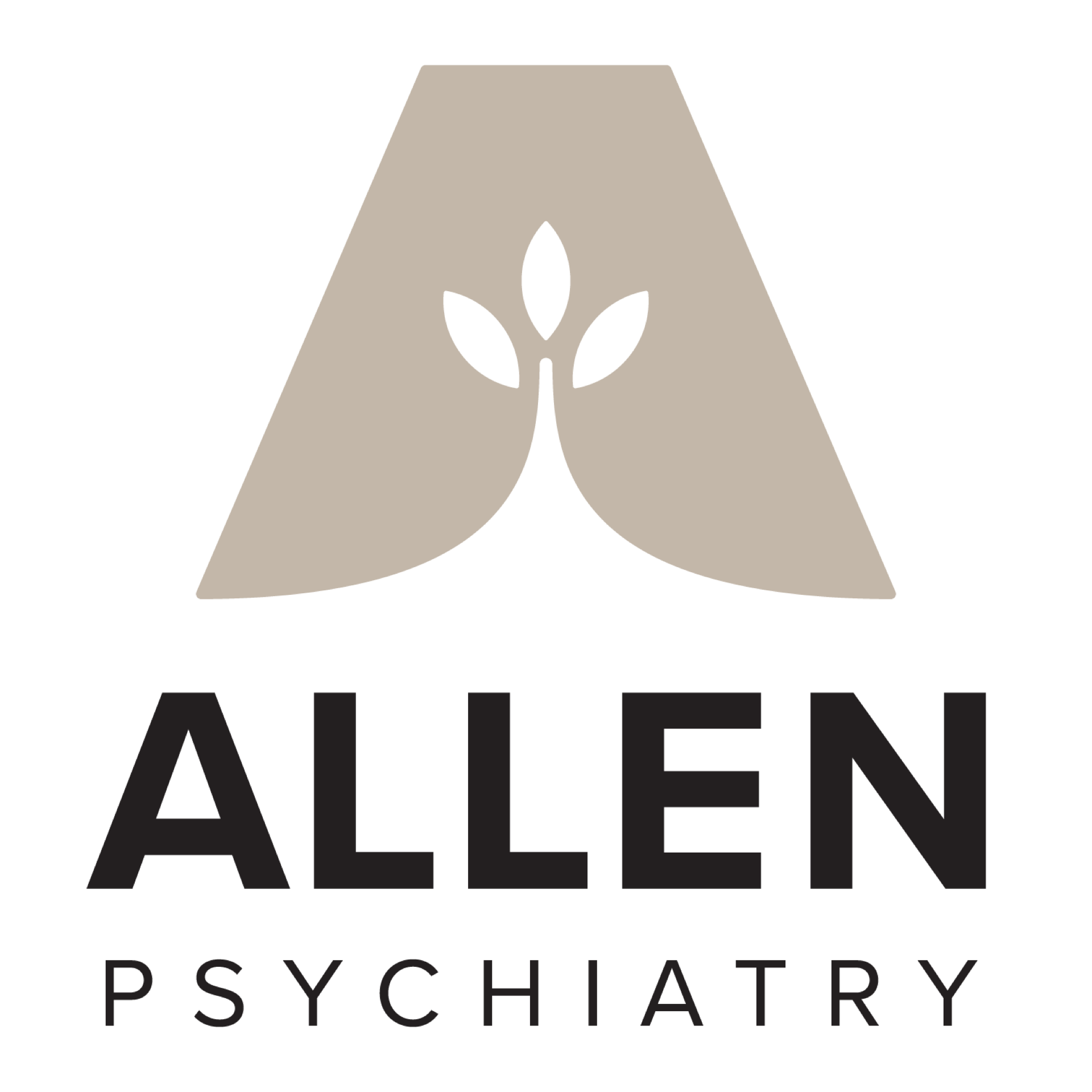Professional Anxiety Treatment in Utah
At Allen Psychiatry, we understand that anxiety is more than just occasional nervousness; it can be an overwhelming and disruptive force in your life. That's why we're here at Allen Psychiatry: we provide comprehensive anxiety treatment.
If you want to learn more about treatment for anxiety, please call (385) 504-1334 or schedule an appointment online. We are here to help you through life's most difficult challenges.
Understanding Anxiety
What is Anxiety?
Adult anxiety is a common mental health condition characterized by persistent and excessive worry, fear, or nervousness. It can interfere with daily activities, work, and relationships. While some anxiety is normal and even helpful in certain situations, excessive anxiety can become debilitating and require professional intervention.
Anxiety at a Glance
- Prevalence: Affects approximately 19.1% of adults in the United States annually (Kessler et al., 2012, Archives of General Psychiatry)
- Onset: Can develop at any age, often triggered by life events or stress (Bandelow & Michaelis, 2015, Nature Reviews Disease Primers)
- Treatment: Highly effective with proper diagnosis and management (Baldwin et al., 2014, Journal of Psychopharmacology)
- Prognosis: Excellent with appropriate treatment and lifestyle modifications (Hofmann et al., 2012, Annual Review of Clinical Psychology)
Key Symptoms of Anxiety
Anxiety manifests through a combination of emotional, cognitive, and physical symptoms that can vary in intensity and duration. Understanding these symptoms is crucial for proper diagnosis and treatment.
- Excessive Worry: Constant worry about various aspects of life, often disproportionate to the actual situation. This worry is difficult to control and may focus on health, work, relationships, or everyday concerns.
- Restlessness: Feeling on edge and unable to relax, often described as feeling "keyed up" or "wound up." This may manifest as fidgeting, pacing, or an inability to sit still.
- Fatigue: Feeling tired easily, even without physical exertion. This fatigue is often related to the mental energy expended on constant worrying and hypervigilance.
- Difficulty Concentrating: Trouble focusing or mind going blank. This can affect work performance, academic achievement, and daily tasks.
- Irritability: Becoming easily annoyed or frustrated, often due to the constant stress and worry associated with anxiety.
- Muscle Tension: Physical symptoms like tension, headaches, or stomachaches. This may include jaw clenching, shoulder tension, or gastrointestinal discomfort.
- Sleep Disturbances: Trouble falling or staying asleep, or unsatisfying sleep. This can include difficulty falling asleep, frequent waking, or early morning awakening.
Physical Symptoms
Anxiety often presents with physical symptoms that can be mistaken for other medical conditions. These may include rapid heartbeat, sweating, trembling, shortness of breath, dizziness, and gastrointestinal issues. It's important to rule out other medical causes while addressing the underlying anxiety.
Causes and Risk Factors
Anxiety disorders typically result from a complex interaction of biological, psychological, and environmental factors. Understanding these factors helps inform treatment approaches.
- Genetics: Family history of anxiety disorders increases risk, suggesting a genetic component
- Brain Chemistry: Imbalances in neurotransmitters like serotonin, norepinephrine, and gamma-aminobutyric acid (GABA)
- Personality: Certain personality traits like being more sensitive to stress, perfectionism, or having a tendency toward negative thinking
- Life Events: Traumatic or stressful life events, including childhood experiences, relationship problems, or work stress
- Medical Conditions: Certain medical conditions or medications can trigger or worsen anxiety symptoms
- Substance Use: Alcohol, caffeine, or other substances can exacerbate anxiety symptoms
Evidence-Based Treatment Options
Effective anxiety treatment typically involves a combination of therapeutic approaches tailored to each individual's specific needs and circumstances.
- Cognitive Behavioral Therapy (CBT): Helps identify and change negative thought patterns and behaviors that contribute to anxiety
- Medication Management: Anti-anxiety medications or antidepressants prescribed by a healthcare provider to regulate brain chemistry
- Lifestyle Modifications: Regular exercise, healthy diet, adequate sleep, and stress management techniques
- Mindfulness and Relaxation: Techniques such as meditation, deep breathing, and progressive muscle relaxation
- Support Groups: Connecting with others who understand the challenges of anxiety
Self-Management Strategies
While professional treatment is essential for managing anxiety disorders, there are several strategies you can implement to complement your treatment plan:
- Limit Caffeine: Cut back on caffeine from soda, coffee, tea, chocolate, and certain medications. Eliminating these for a week may reduce anxiety and overreactions.
- Distract Yourself: Dwelling on anxiety can reinforce it. Engage in enjoyable activities, have light conversations with friends, read, watch movies, take walks, or exercise to shift your focus.
- Positive Self-Talk: Your mind responds to the messages it receives. Counter anxiety with reassuring messages such as "At this moment, I am safe." Remind yourself that most situations aren't as threatening as they seem.
- Deep Breathing: Use your body's natural tool by practicing slow, deep breathing for 1-5 minutes. Inhale and exhale, counting silently to 4 or 8. Combine this with positive self-talk for enhanced results.
Important Note
Remember that these self-management strategies can complement professional treatment prescribed by your psychiatrist, psychotherapist, or primary care physician. They are not a substitute for professional care, especially for moderate to severe anxiety disorders.

